Table of Contents
- Introduction
- The Relationship Between Height and Weight
- Tips for Maintaining a Healthy Height and Weight Ratio
- Importance of Regular Exercise
- Balanced Diet and Nutrition Recommendations
- Debunking Common Height and Weight Myths
- Conclusion
Introduction
Welcome to our comprehensive guide on achieving the ideal height and weight ratio for optimal health. In this article, we will explore the importance of maintaining a healthy weight based on your height, and provide valuable tips and recommendations to help you achieve balance and well-being.
The Relationship Between Height and Weight
Understanding the relationship between height and weight is crucial when it comes to achieving a healthy ratio. We will delve into the scientific aspects of this relationship, discussing how an imbalance can lead to various health complications. Furthermore, we will explore the Body Mass Index (BMI) as a useful tool in determining whether your weight is within a healthy range.
In terms of physical well-being, the relationship between height and weight plays a crucial role. Many individuals strive to achieve an ideal height and weight ratio that promotes good health and overall fitness.
Height and weight are two significant factors in determining an individual's body mass index (BMI), which is widely used to assess if a person is underweight, normal weight, overweight, or obese. BMI is calculated by dividing weight (in kilograms) by height (in meters) squared.
While the ideal height and weight ratio may vary from person to person, it is generally accepted that maintaining a healthy BMI range between 18.5 and 24.9 is desirable. This range is associated with lower health risks and is considered an indication of good physical fitness.
However, it is essential to note that the ideal height and weight ratio alone cannot determine an individual's overall health. Other factors such as body composition, muscle mass, and genetics also contribute to a person's well-being. Therefore, it is crucial to focus on a holistic approach that includes regular exercise, a balanced diet, and regular health check-ups.
In conclusion, achieving the ideal height and weight ratio is a personal goal for many individuals seeking a healthy lifestyle. However, it is important to remember that overall health and fitness go beyond just these two factors. Striving for a balanced approach that considers multiple aspects of well-being is key to maintaining optimal physical health.
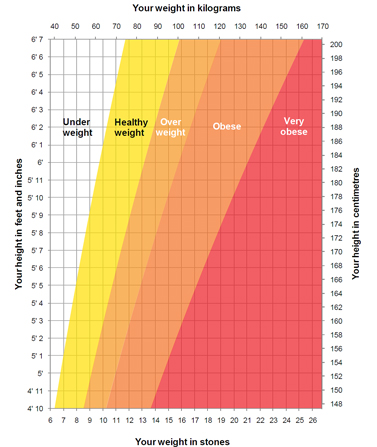
Tips for Maintaining a Healthy Height and Weight Ratio
Maintaining a healthy height and weight ratio requires a combination of various lifestyle factors. This section will provide you with expert tips on establishing a sustainable exercise routine, adopting a balanced diet, and making healthy choices to keep your weight in check. Discover practical advice on setting achievable goals and incorporating healthy habits into your daily routine.
What is the Ideal Height and Weight Ratio?
The ideal height and weight ratio refers to the correlation between your height and weight, which determines if you are within a healthy range for your body type. This ratio is commonly calculated using the Body Mass Index (BMI), which takes into account your height and weight to provide an estimation of your overall body composition.
Tips for Maintaining a Healthy Height and Weight Ratio
1. Balanced Diet:
Eat a well-balanced diet that includes a variety of fruits, vegetables, whole grains, lean proteins, and healthy fats. Avoid excessive intake of processed foods, sugary beverages, and high-fat snacks.
2. Regular Exercise:
Engage in regular physical activity such as cardio exercises, strength training, and flexibility exercises. Aim for at least 150 minutes of moderate-intensity exercise or 75 minutes of vigorous-intensity exercise per week.
3. Portion Control:
Be mindful of portion sizes to avoid overeating. Use smaller plates and bowls, and listen to your body's hunger and fullness cues. Avoid eating in front of screens as it can lead to mindless eating.
4. Hydration:
Stay adequately hydrated by drinking plenty of water throughout the day. Water helps in maintaining proper metabolism, digestion, and overall bodily functions.
5. Adequate Sleep:
Ensure you get enough sleep every night. Lack of sleep can disrupt hormonal balance and affect your body's metabolism, potentially leading to weight gain.
6. Stress Management:
Find healthy ways to manage stress, as chronic stress can contribute to weight gain. Practice relaxation techniques like deep breathing, meditation, or engaging in hobbies and activities that help you relax.
7. Regular Health Check-ups:
Visit your healthcare provider regularly for routine check-ups. They can help monitor your overall health, provide guidance on maintaining a healthy weight, and suggest any necessary interventions.
8. Body Positivity:
Remember that everyone's body is unique, and the focus should be on overall health rather than attaining a specific height and weight ratio. Embrace your body and practice self-love.
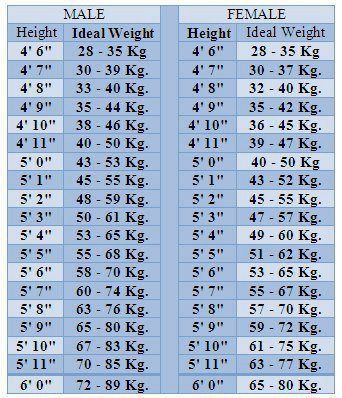
Importance of Regular Exercise
Regular exercise plays a vital role in achieving and maintaining an ideal height and weight ratio. We will explore the different types of exercises that are most beneficial for weight management and overall well-being. From cardio workouts to strength training, learn how to incorporate physical activity into your life and boost your overall fitness level.
Regular exercise is crucial for maintaining a healthy lifestyle. Engaging in physical activity not only helps improve our physical fitness, but it also positively impacts our mental and emotional well-being. There are numerous benefits associated with regular exercise:
- Improves cardiovascular health
- Increases strength and flexibility
- Enhances mental clarity and reduces stress
- Boosts metabolism and aids in weight management
- Strengthens the immune system
By making exercise a part of our daily routine, we can significantly reduce the risk of developing various chronic diseases such as heart disease, diabetes, and obesity. Additionally, regular exercise promotes longevity and helps us maintain a healthy body weight.
When it comes to determining the ideal height and weight ratio, it's important to consider factors such as body composition, genetics, and individual body types. While there are general guidelines, these ratios can vary for different individuals.
Body Mass Index (BMI) is often used as a screening tool to estimate whether a person is underweight, overweight, or within a healthy weight range. However, it does not take into account muscle mass and overall body composition. It is essential to consult with healthcare professionals to get a comprehensive assessment of your ideal weight and height ratio based on your individual characteristics.
Remember, everyone is unique, and it is important to focus on overall health and well-being rather than strictly adhering to a specific height and weight ratio. Regular exercise, combined with a balanced diet and healthy lifestyle choices, will help you maintain a strong and fit body.
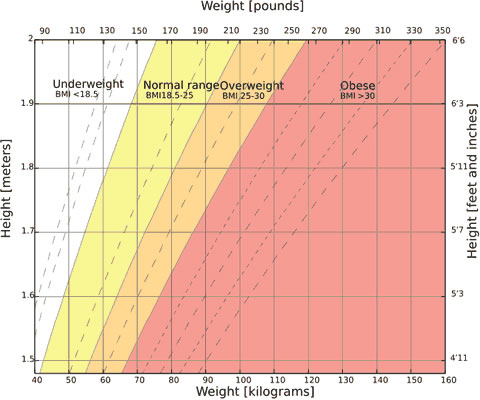
Balanced Diet and Nutrition Recommendations
Your diet directly impacts your weight, height, and overall health. In this section, we will provide you with a comprehensive guide to building a balanced diet that promotes a healthy weight ratio. Learn about essential nutrients, portion control, and effective dietary practices that can help you maintain a healthy lifestyle. We will also discuss common misconceptions about dieting and debunk prevalent myths.
A balanced diet and nutrition play a crucial role in maintaining a healthy body. It is important to consume the right combination of foods to ensure our bodies receive essential nutrients.
When discussing ideal height and weight ratio, we need to consider various factors, including genetics, age, body composition, and overall health. The ideal height and weight ratio is not a one-size-fits-all concept as everyone's body is unique.
However, to determine if you have a healthy weight for your height, the Body Mass Index (BMI) is commonly used. BMI calculates an individual's weight in relation to their height. It is calculated by dividing weight (in kilograms) by the square of height (in meters).
While BMI can provide a general idea, it is essential to understand that it does not consider individual variations such as muscle mass, bone density, and body composition. Therefore, it should not be the sole determinant of an individual's health status.
It is recommended to focus on overall well-being rather than obsessing over specific height and weight ratios. Leading a healthy lifestyle involves maintaining a balanced diet that includes a variety of fruits, vegetables, whole grains, lean proteins, and healthy fats.
In addition to a balanced diet, regular exercise is crucial for maintaining a healthy weight and overall fitness. Engaging in physical activities that you enjoy and staying physically active can help improve your overall well-being.
Remember, everybody is unique, and your ideal height and weight ratio may vary from someone else's. Consult with a healthcare professional or a registered dietitian for personalized guidance and recommendations tailored to your specific needs and goals.
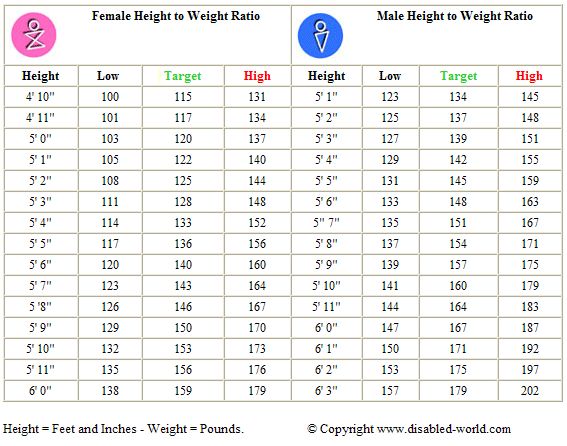
Debunking Common Height and Weight Myths
There are numerous myths and misconceptions surrounding the ideal height and weight ratio. We will address some of the most prevalent misconceptions and provide evidence-based explanations to help you separate fact from fiction. By debunking these myths, you can gain a clearer understanding of what truly matters in achieving a healthy weight for your height.
When it comes to determining the ideal height and weight ratio, many myths and misconceptions exist. Let's debunk some of the most common ones:
Myth #1: Taller people are always healthier and more attractive.
While height can be perceived as an advantage in some situations, it doesn't necessarily equate to better health or attractiveness. Each individual has unique characteristics and attributes that contribute to their overall well-being and attractiveness. Therefore, it's important not to generalize or make assumptions based solely on height.
Myth #2: Being underweight means you are healthier.
Contrary to popular belief, being underweight is not synonymous with good health. In fact, being underweight can indicate malnutrition or underlying health issues. It's crucial to maintain a balanced diet and ensure adequate nutrition to support overall health, regardless of weight.
Myth #3: BMI (Body Mass Index) is the ultimate indicator of ideal weight.
BMI is a commonly used metric to assess weight status, but it has its limitations. It doesn't consider individual variations in muscle mass, bone density, or body composition. Thus, relying solely on BMI may not provide an accurate reflection of a person's ideal weight. Other factors such as body fat percentage and overall fitness levels should also be considered.
Myth #4: There is a universal ideal height and weight ratio.
Height and weight preferences vary across different cultures and individuals. There is no single ideal ratio that applies universally. Personal factors, genetics, and personal goals play a significant role in determining what is considered ideal for an individual. It's important to focus on overall health, well-being, and body positivity rather than conforming to societal ideals.
Understanding the debunked myths surrounding height and weight can help promote a healthier and more positive perspective. Instead of fixating on unrealistic ideals, it is important to prioritize one's own health, body positivity, and well-being.
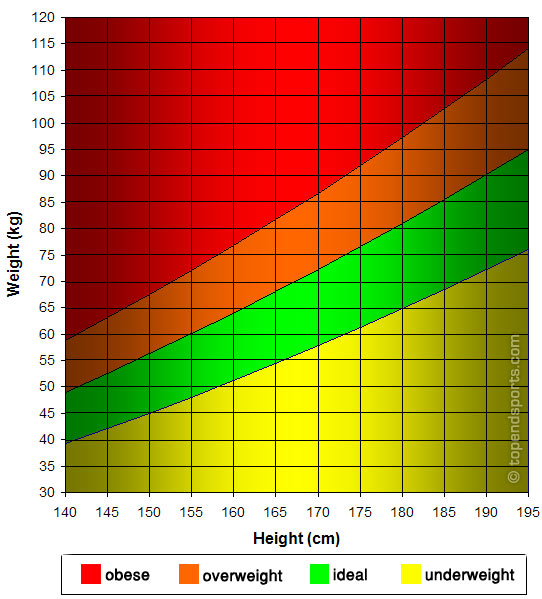
Conclusion
In conclusion, understanding the ideal height and weight ratio is essential for overall well-being. By implementing the recommendations discussed throughout this article, you can make informed decisions and take steps towards achieving a healthy balance. Remember, maintaining a healthy height and weight ratio is not only about appearance but also about promoting long-term health and vitality.
After thoroughly examining the topic of ideal height and weight ratio, several key conclusions can be drawn.
Firstly, it is important to acknowledge that determining the ideal height and weight ratio is a complex and multifactorial issue. Many variables come into play, such as genetics, body composition, muscle mass, and individual health conditions.
Secondly, while some general guidelines exist regarding height and weight, it is essential to consider the concept of body diversity and avoid adhering to rigid beauty standards. Every individual is unique, and there is no single ideal height and weight ratio that applies universally.
Moreover, the notion of the ideal height and weight ratio should not solely revolve around appearance. Prioritizing overall health and well-being is of utmost importance. It is crucial to maintain a balanced diet, engage in regular physical activity, and consult healthcare professionals to assess one's individual health needs.
Additionally, the Body Mass Index (BMI) is often utilized as an indicator to estimate the ideal weight range based on height. However, BMI alone cannot provide a comprehensive assessment of an individual's health status and should be used in conjunction with other factors.
Lastly, societal norms and cultural perceptions of the ideal height and weight ratio should be critically examined. It is crucial to promote body positivity and acceptance, valuing individuals for their unique attributes and qualities rather than solely focusing on physical appearance.
In conclusion, the ideal height and weight ratio should be approached with caution, considering various factors such as genetics, body diversity, overall health, and societal influences. Embracing individual differences and prioritizing holistic well-being should take precedence over conforming to a rigid ideal.

Key Takeaways
- Achieving the ideal height and weight ratio is crucial for optimal health.
- The Body Mass Index (BMI) can help determine if your weight is within a healthy range.
- Regular exercise is essential for weight management and overall well-being.
- Adopting a balanced diet is key to maintaining a healthy height and weight ratio.
- Debunking common height and weight myths is important for making informed decisions.
FAQ
1. How do I calculate my Body Mass Index (BMI)?
To calculate your BMI, divide your weight in kilograms by the square of your height in meters. Alternatively, you can find online BMI calculators or consult your healthcare provider.
2. Can genetics influence my height and weight ratio?
Genetics do play a role in determining your height and body composition; however, lifestyle factors and healthy habits are equally important for maintaining an ideal ratio.
3. What are some recommended exercises for weight management?
Exercises such as running, swimming, cycling, and strength training are highly effective for weight management. Choose activities you enjoy to stay motivated and make exercise a regular part of your routine.
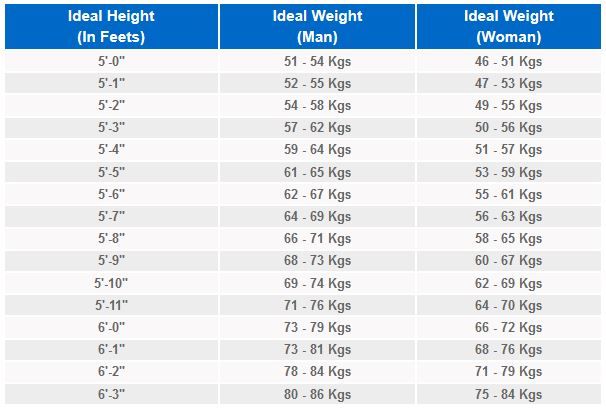


Recent Comments